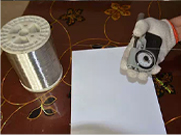Dec . 09, 2024 19:37 Back to list
Top Quality Roof Wire Netting for Effective Protection and Durability
Best Roof Wire Netting A Comprehensive Guide
When it comes to protecting your roof and enhancing the functionality of your outdoor spaces, roof wire netting emerges as an invaluable solution. Whether you are looking to prevent pests from invading your attic or wishing to create a secure environment for birds and other wildlife, selecting the best roof wire netting becomes crucial. In this article, we will explore various types of wire netting, their benefits, and key considerations to help you make an informed decision.
Understanding Roof Wire Netting
Roof wire netting is typically constructed from durable materials such as stainless steel, galvanized steel, or plastic-coated wire. Its primary purpose is to provide a barrier that prevents unwanted access while allowing for ventilation and light. The mesh design ensures that air can circulate, which is vital for areas that may trap heat or moisture.
Types of Roof Wire Netting
1. Stainless Steel Wire Mesh This type of netting is highly durable and resistant to rust and corrosion. It is an excellent choice for coastal areas where saltwater can degrade other materials.
2. Galvanized Steel Mesh Galvanized wire is treated with a protective coating, making it suitable for various weather conditions. Although not as rust-resistant as stainless steel, it offers a cost-effective option for many homeowners.
3. Plastic-Coated Wire Mesh This type of netting is ideal for indoor or covered outdoor use. The plastic coating adds an additional layer of protection and can be available in various colors to match your home's aesthetic.
4. Polyester Mesh For those looking for a lightweight option, polyester mesh can be a good choice. It is often used in bird netting solutions, allowing light and air to pass while keeping out larger pests.
Benefits of Using Roof Wire Netting
best roof wire netting

1. Pest Control One of the most significant advantages of roof wire netting is its ability to prevent pests such as rodents, raccoons, and birds from entering your home. By installing netting over vents and openings, you can effectively minimize infestations.
2. Protection from Debris Roof wire netting can safeguard your roof from debris such as leaves, branches, and other materials that may accumulate over time, leading to potential damage or leaks.
3. Enhanced Ventilation Unlike solid barriers, wire netting allows for proper air circulation, reducing the chances of mold and mildew growth in your attic or roof space.
4. Visibility For property owners who want to maintain the view while ensuring security, wire netting provides a hidden physical barrier that is less obtrusive than traditional fencing or solid barriers.
5. Customizability Roof wire netting can be cut to specific sizes and shapes, enabling homeowners to tailor it to their unique needs. Whether it’s covering a small roof vent or a larger area, customization is simple.
Key Considerations
When selecting the best roof wire netting for your needs, consider factors such as the environment (urban vs. rural), local wildlife, and specific security concerns. It's essential to match the netting material to your local climate conditions. For instance, areas with high humidity may require rust-resistant materials.
Conclusion
Investing in high-quality roof wire netting can greatly enhance the safety, functionality, and longevity of your home. By understanding the various types of netting available and their benefits, you can make an informed decision to ensure your property remains protected against pests and debris. With proper installation and maintenance, roof wire netting can serve as an effective barrier while contributing to a healthier living environment.
share
-
CE Certified 250 Micron Stainless Steel Mesh | Premium Filter
NewsJul.31,2025
-
CE Certification Buy Wire Mesh Fence for High Security and Durability
NewsJul.30,2025
-
Stainless Steel Mesh Filter Discs for Precise Filtration Solutions
NewsJul.29,2025
-
CE Certification 250 Micron Stainless Steel Mesh for Industrial Use
NewsJul.29,2025
-
Premium Stainless Steel Weave Mesh for Filtration and Security
NewsJul.29,2025
-
CE Certification 250 Micron Stainless Steel Mesh for Safety & Durability
NewsJul.29,2025

